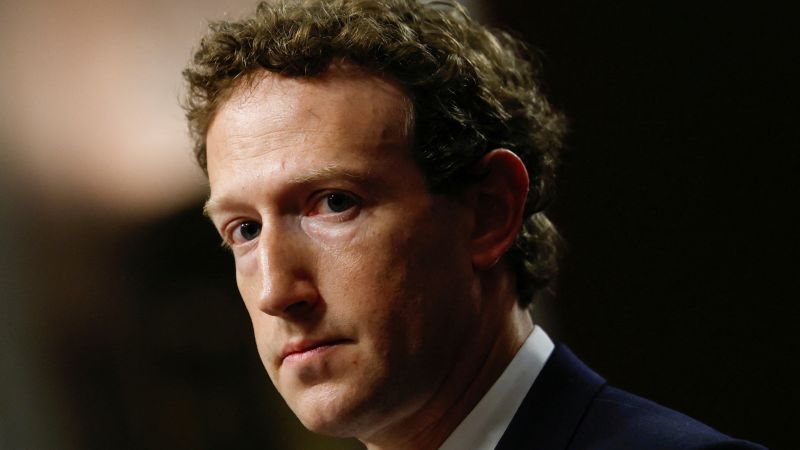In a surprising turn of events, Mark Zuckerberg, the CEO of Meta, has been making statements that have been seen as supportive of right-wing narratives and policies, much to the satisfaction of Republicans. One recent incident involved a letter sent by Zuckerberg to the House Judiciary Committee, in which he claimed that the Biden administration had pressured Meta to censor COVID-19 content, including humor and satire. This statement was immediately seized upon and used by Donald Trump to further promote the unfounded claim that the 2020 election was rigged. The Republican-led House Judiciary Committee also used Zuckerberg’s letter to attack President Joe Biden and Vice President Kamala Harris, further fueling political tensions.
Zuckerberg’s decision to disclose the pressure he felt from the White House to combat COVID-19 misinformation has been seen as a nod to Republicans who have long accused social media platforms of censoring conservative voices. This move by Zuckerberg has drawn criticism, especially since the Supreme Court had previously ruled that the federal government asking platforms to take down potential misinformation was not overstepping. However, the disclosure of these events in the letter to the House Judiciary Committee has added fuel to the fire of ongoing political controversies and debates surrounding censorship and misinformation on social media platforms.
In addition to the pressure from the White House regarding COVID-19 content, Zuckerberg also admitted that the decision to limit the sharing of a story regarding Hunter Biden’s laptop by the New York Post in October 2020 was a mistake. While the contents of the laptop were later confirmed to be authentic by the Justice Department, the narrative surrounding the story was false and aligned with Russian disinformation efforts. This acknowledgment further stirred controversy and debate around the handling of misinformation and elections on social media platforms.
Zuckerberg’s actions, including dialing back on election funding efforts and expressing regret over certain content moderation decisions, have been seen as attempts to appease Republicans and seek neutrality in the political landscape. His decision to not repeat the financial contributions made during the 2020 election cycle and to acknowledge past mistakes in content moderation policies indicate a shift in approach by Meta. However, these actions have also been met with criticism and skepticism regarding the company’s role in shaping political discourse and information dissemination.
Overall, Zuckerberg’s recent statements and actions have sparked debates about social media platforms’ influence on political affairs and the spread of misinformation. While attempting to appear neutral and nonpartisan, Zuckerberg’s decisions have inadvertently favored Republicans and fueled existing political tensions. As the 2024 presidential election approaches, the role of social media companies like Meta in shaping public opinion and discourse will continue to be scrutinized, with implications for the future of democracy and free speech online.













